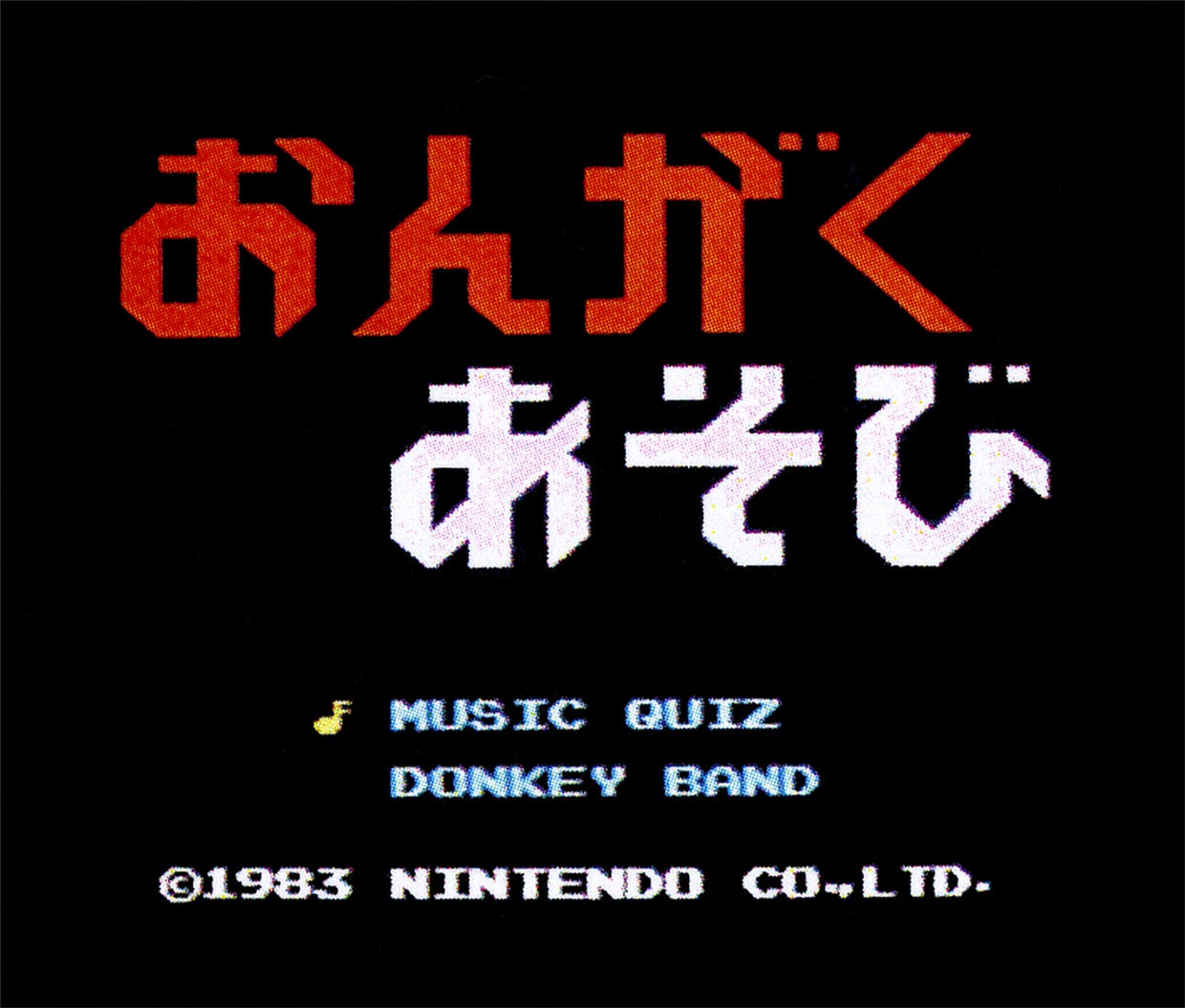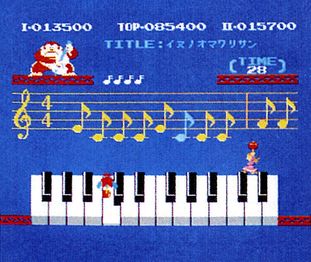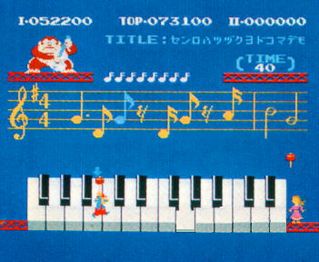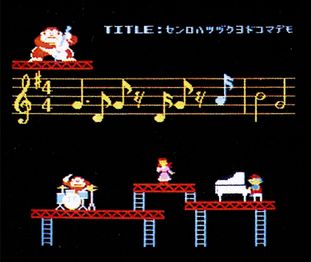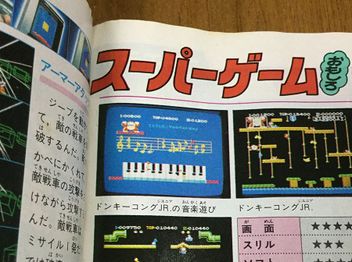Donkey Kong no Ongaku Asobi (lost build of cancelled Famicom educational game; 1983): Difference between revisions
SpaceQuakes (talk | contribs) No edit summary |
No edit summary |
||
| Line 5: | Line 5: | ||
|status=<span style="color:red;">'''Lost'''</span> | |status=<span style="color:red;">'''Lost'''</span> | ||
}} | }} | ||
'''''Donkey Kong no Ongaku Asobi''''' (ドンキーコングの音楽あそび ''Donkey Kong’s Fun With Music'') is a cancelled 1983 Famicom educational video game that starred the cast of the original Donkey Kong series with the newcomer Donkey Kong Jr. meant to teach players music.<ref>[http://www.unseen64.net/2008/04/14/donkey-kongs-fun-with-music-nes-cancelled/ Unseen64 article.] Retrieved 29 Jul '17 | '''''Donkey Kong no Ongaku Asobi''''' (ドンキーコングの音楽あそび ''Donkey Kong’s Fun With Music'') is a cancelled 1983 Famicom educational video game that starred the cast of the original Donkey Kong series with the newcomer Donkey Kong Jr. meant to teach players music.<ref>[http://www.unseen64.net/2008/04/14/donkey-kongs-fun-with-music-nes-cancelled/ Unseen64 article on ''Donkey Kong no Ongaku Asobi''.] Retrieved 29 Jul '17</ref> | ||
It was originally going to released for the Famicom in December 1983 at 3,800 yen, but Nintendo only released two educational games, ''Donkey Kong Jr. Math'' and ''Popeye no Eigo Asobi'' and cancelled this game for unknown reasons. ''Donkey Kong no Ongaku Asobi'' had only been announced in 1983 in a Japanese gaming magazine. | It was originally going to released for the Famicom in December 1983 at 3,800 yen, but Nintendo only released two educational games, ''Donkey Kong Jr. Math'', and ''Popeye no Eigo Asobi'' and cancelled this game for unknown reasons. ''Donkey Kong no Ongaku Asobi'' had only been announced in 1983 in a Japanese gaming magazine. | ||
No prototypes or any other information has surfaced aside from some screenshots. The game was cancelled due to several of reasons, the licensing issues of the songs, only using children's songs, the small capacity of the Famicom, and the fact that the microphone didn't analyze sounds. | No prototypes or any other information has surfaced aside from some screenshots. The game was cancelled due to several of reasons, the licensing issues of the songs, only using children's songs, the small capacity of the Famicom, and the fact that the microphone didn't analyze sounds. | ||
On May | On May 19th, 2017, a Japanese Twitter user DentoTeramachi found a fifth screenshot in an gaming magazine.<ref>[https://twitter.com/DentoTeramachi/status/865593708497969154 Japanese Twitter user post on various screenshots of the game.] Retrieved 29 Jul '17</ref> | ||
==Gallery== | ==Gallery== | ||
| Line 20: | Line 20: | ||
File:Donkey Kong Fun With Music 05.jpg | File:Donkey Kong Fun With Music 05.jpg | ||
</gallery> | </gallery> | ||
==External Link== | |||
*[http://www.mariowiki.com/Donkey_Kong_no_Ongaku_Asobi Super Mario Wiki page on ''Donkey Kong no Ongaku Asobi''.] Retrieved 29 Jul ‘17 | |||
==References== | ==References== | ||
{{reflist}} | |||
[[Category:Lost video games]] | [[Category:Lost video games]] | ||
Revision as of 18:05, 21 March 2020
Donkey Kong no Ongaku Asobi (ドンキーコングの音楽あそび Donkey Kong’s Fun With Music) is a cancelled 1983 Famicom educational video game that starred the cast of the original Donkey Kong series with the newcomer Donkey Kong Jr. meant to teach players music.[1]
It was originally going to released for the Famicom in December 1983 at 3,800 yen, but Nintendo only released two educational games, Donkey Kong Jr. Math, and Popeye no Eigo Asobi and cancelled this game for unknown reasons. Donkey Kong no Ongaku Asobi had only been announced in 1983 in a Japanese gaming magazine.
No prototypes or any other information has surfaced aside from some screenshots. The game was cancelled due to several of reasons, the licensing issues of the songs, only using children's songs, the small capacity of the Famicom, and the fact that the microphone didn't analyze sounds.
On May 19th, 2017, a Japanese Twitter user DentoTeramachi found a fifth screenshot in an gaming magazine.[2]
Gallery
External Link
- Super Mario Wiki page on Donkey Kong no Ongaku Asobi. Retrieved 29 Jul ‘17
References
- ↑ Unseen64 article on Donkey Kong no Ongaku Asobi. Retrieved 29 Jul '17
- ↑ Japanese Twitter user post on various screenshots of the game. Retrieved 29 Jul '17
